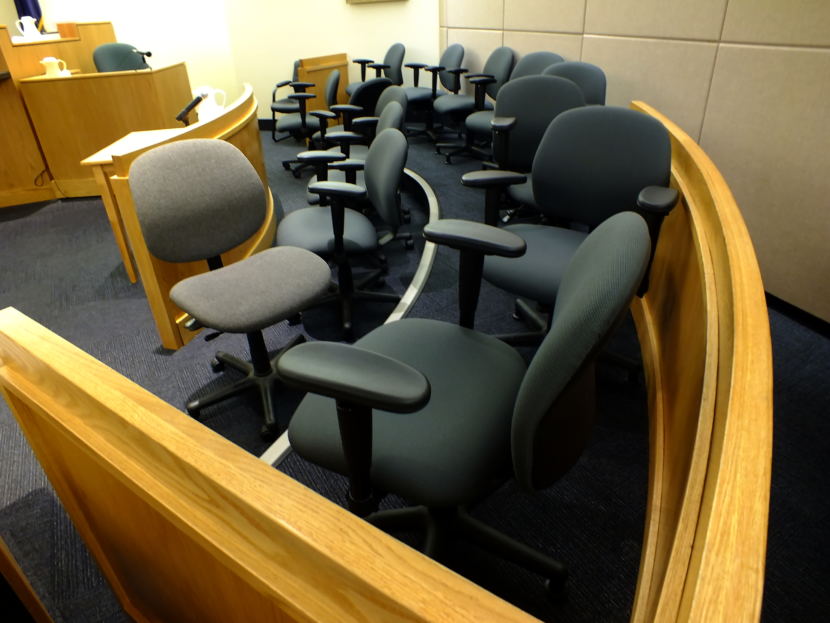
Update (Monday, March 16, 10:46 a.m.) — Nat Herz, Alaska Public Media
Alaska Supreme Court Chief Justice Joel Bolger on Sunday ordered that all new jury trials be suspended, building on a directive last week that led to the suspension of trials in half of the state’s judicial districts out of concern over the spread of the novel coronavirus. (Read more)
Update (Friday, March 13, 2:35 p.m.) — Rashah McChesney, KTOO
New jury trials in Anchorage, Kenai and Palmer have been suspended for the week of March 16.
According to a media release from the court system, six jury trials were scheduled and would have required more than 200 potential jurors to assemble.
Jury trials that have already started and grand jury proceedings will continue. Trials scheduled in the the First Judicial District — which encompasses most of Southeast Alaska — and the Fourth Judicial District — which is most of Western Alaska — will also continue as scheduled.
Original story
Alaska Court System officials are considering suspending jury trials or closing courts to slow the potential spread of coronavirus in the state.
Deputy Administrative Director Doug Wooliver said Friday afternoon that they’re ready to make a decision on a moment’s notice.
“We aren’t there yet, but things are developing by the hour,” Wooliver said. “The court is watching very, very closely about how we’re going to be addressing this.”
Wooliver said they are coordinating with judges, court administrative staff and other justice agencies like the state’s Public Defender Agency, Department of Corrections and the Department of Law.
“If they make changes in their policies, or we make changes in our operations, we all affect each other’s (policies and operations),” Wooliver said.
There are some things the court system could do short of closing entirely.
They include things like relaxing the rules on when someone can call into court instead of appearing in person. Grand juries could also be suspended to prevent groups of people from gathering.
But there are some hurdles. Alaska defendants in a criminal case have a right to a speedy trial within 120 days.
Wooliver said if jury trials are suspended, the Alaska Supreme Court will have to issue an emergency order changing or suspending the speedy trial rule.
“You could’ve been waiting for a considerable period of time for your trial in a civil case, for example, and those could all be postponed,” Wooliver said. “Closing down or significantly restricting the justice system would have a profound impact on Alaskans.”
Other states and jurisdictions in the Lower 48 have already suspended jury trials or restricted access to courthouses.
The Alaska Court System is currently asking Alaskans not to come to their local courthouse if they are sick or believe they have been exposed to COVID-19, even if they are scheduled to appear in court or have been summoned for jury service. Instead, court officials say they should call the courthouse to determine next steps.